How to Root Plant Clippings
I have a bush in our yard that is a pure delight to me.
It has the distinguished honor of being the first flowering plant in our landscaping after a long winter. In the winter, it has pretty dark shiny evergreen foilage. When these little white blossoms open, they produce the most heavenly lemon smell.

My angelic plant is a Daphne bush (maybe the star white variety ) and it seems to like the shaded spot it holds under the protective canopy of oaks over it. If there was ever a plant I want more of, this is it. So, I decided to try to root some clippings this year using rooting hormone.
Instructions: Wait for the flowers to bloom and fall off.
Once the bush starts to sprout out little kelly green shoots, clip off 12-20 of those new shoots.
Clip just below two leaves and immediately put the clippings in a cup of water so they won’t dry out.
Set up a seedling tray full of a compost and/or potting soil mixture.
Use a pencil to poke a large hole in the middle of each box. The hole has to be big enough for the clipping to be inserted without the stem touching the dirt.
Select a clipping out of the water and shake any excess water off, but do not dry. Strip any leaves off the stem where it will be inserted below the dirt.
Dip the clipping into the rooting hormone powder up to where the dirt level will stop. Shake any excess back into the bottle.
Carefully insert the clipping into the hole you made in the dirt (you want to avoid disturbing the powder.) Gently press dirt back around the clipping.
After all the clippings have been planted, water the soil until it is moist, but don’t drown your clippings.
Set your clippings in a sunny window that will receive a few hours of sun daily. Or you can set your tray in a protected (partially shaded spot) in your yard if the last frost has passed. Water frequently to keep the soil moist, but do not over-saturate your clippings.
Within a few weeks the clipping should sprout roots and continued to shoot up. After they are maturing well, you should be able to transplant them to their new location. Continue to water and protect them from frost for a month or so.
From the research I have done, Daphne’s are very picky about their home. Well drained soil is a must. And protection from the elements is preferred (which explains why they like living on the rise in our yard below the bigger trees.)
So, what plant do you want to root? Do you have any “perfect” bushes that you wish you had more of? Do tell, I want to fill in some holes in our landscaping.
Side note: You can try to root almost any plant or shrub. Some clippings will self root. You can try cutting them and putting them in a vase with water in it in your sunny window. Watch the clippings for signs of roots after a week or more. Vinca and ivy usually self roots for me. But, the daphne never has.
Happy planting!
Linking up to Centsational Girl’s Garden Party

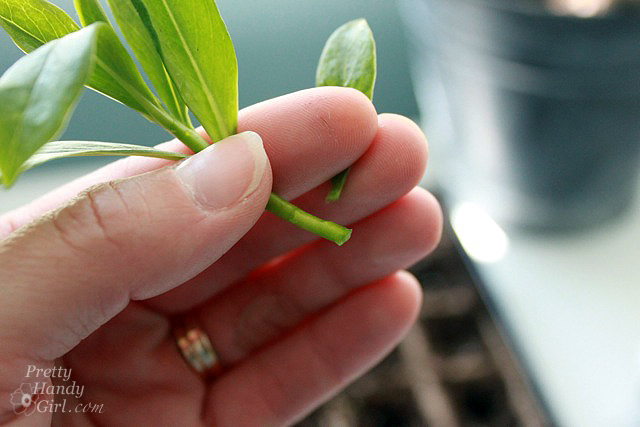
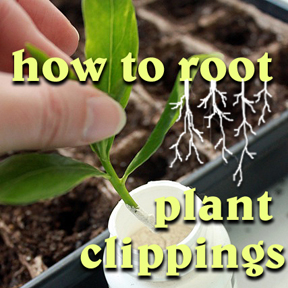
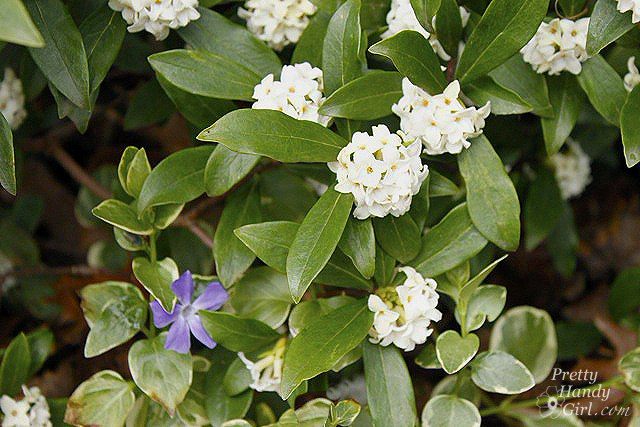
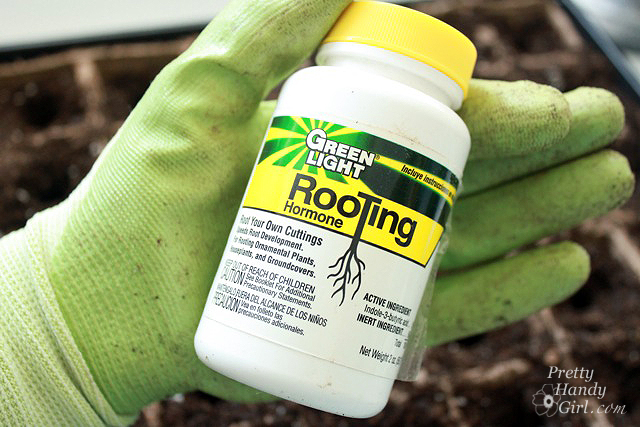
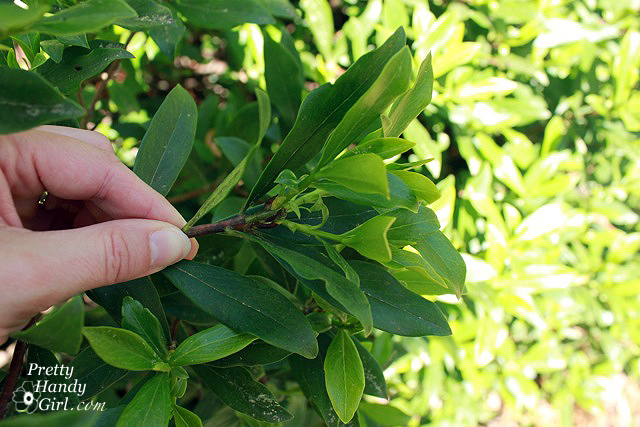
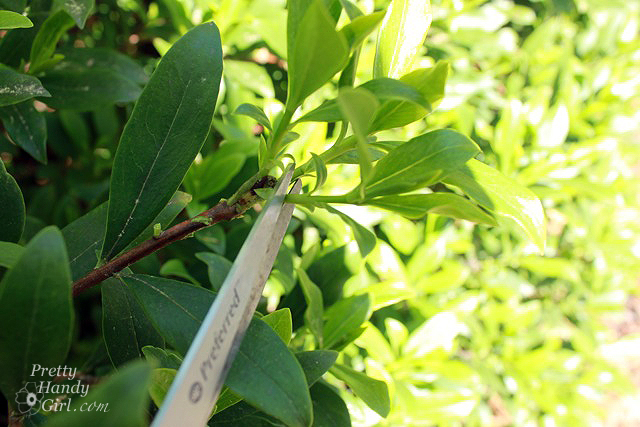
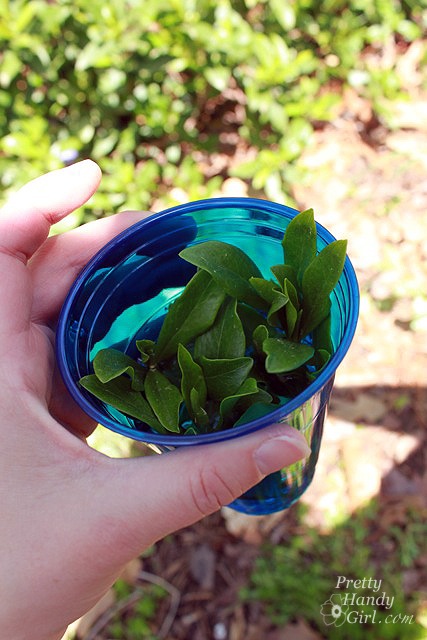
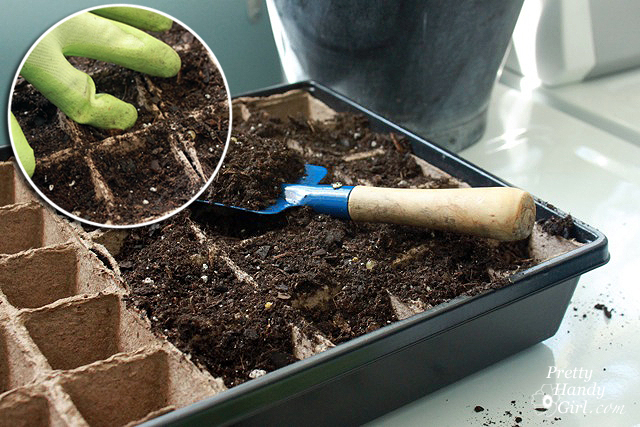
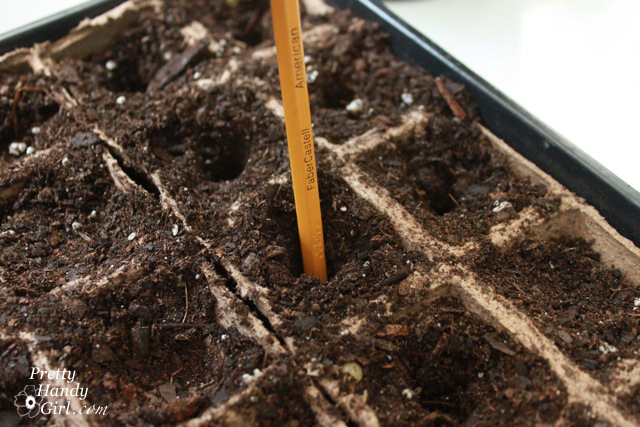
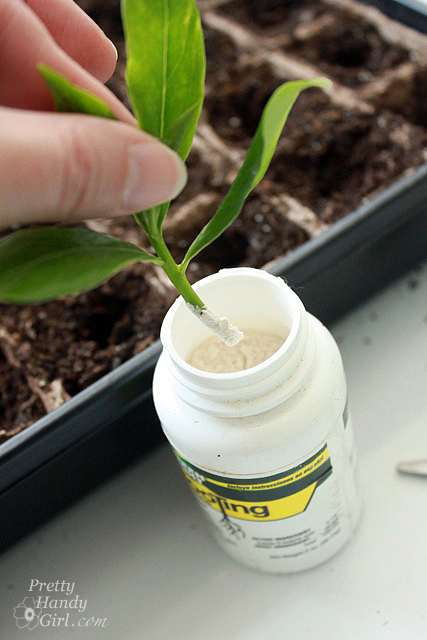
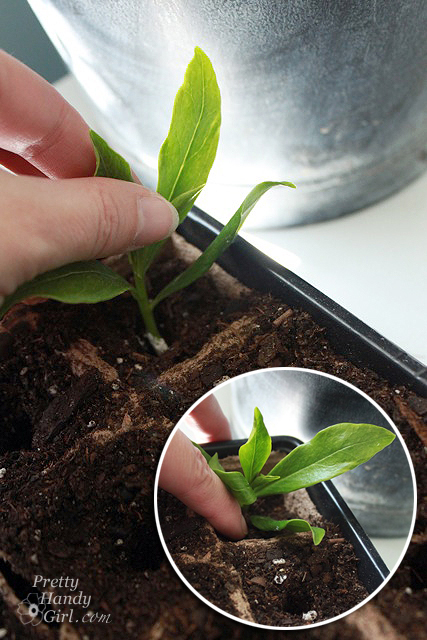
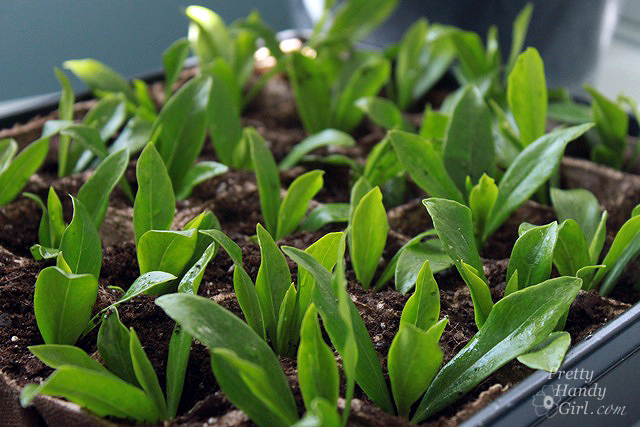
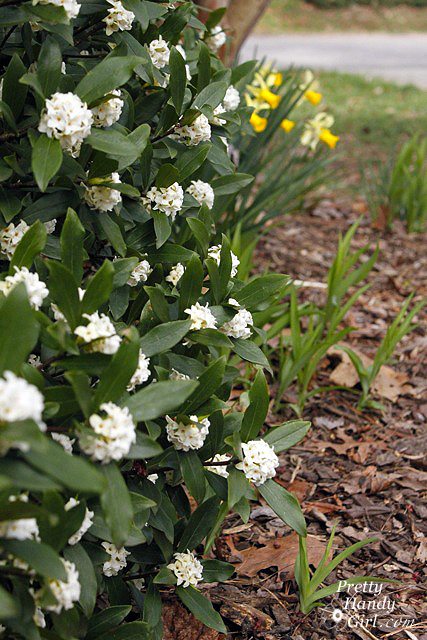



I would like to make it with cuts of hoya that i have …can i…?
i got a flower arrangement for mothers day and this stem with leaves on it was the only green thing left from the arrangement. I have had it in water since then and it never dries out. It has many leaves on it and they are kind of like the leaves on a citric bush. I am amazed at how long it has lasted yet it never roots. Does anyone know what kind of plant clipping it is cause if I could harness the serum from this plant it would cure wrinkles. I swear its real because the bottom that is in water is sort of brown where it has been in water so long. Please someone tell me what it is.
Dear Brittany,
I am from India climate is tropical like Mexico
I am trying to grow Oregano, Thyme & Rosemary from cuttings & Rooting Hormones
They stay healthy Fresh & lively up to 20 days in the pot soil which is sprayed with water often but they do not produce roots. Cuttings are fresh from local produce please tell me what is wrong
Some clippings are hard to root. You might have to try buying seeds or a whole plant.
I would like to propagate my gardenias. They are large size in pots and on my 3 rd year with them. I live in zone 9, can you help? Where to cut and how to process the cuttings?
Thanks,
Dennis
I am so interesting with that work and I like !
I would love to share clipping with you. I thought it would be neat to share plants and shrubs with a group and update each other on their growth. Thanks for sharing.
hi there,
Would you know how to root Peony’s? I just love them and they are so expensive! Thank you for sharing this bit of information too…. I will for sure try it. Maybe do the same thing with the Peony?
Thanks, Debbie
So cool! I love regrowing kitchen scraps. I will have to try this with ALL of my favorite plants outside. It is totally fun and addicting. =) Thanks for excellent tutorial. I want to try this with my fruit trees.
I want to clone Salal and also Siberian peashrub. Any tips on those? Thanks.
I have tried this several times with geraniums with NO success! I was able to get a few cuttings to root with no hormone help, but usually they just rot from too much moisture. I thought I might try again (soon) when the plants are growing a bit more vigorously. I live in zone 5, so bring the geraniums in the house and let them go dormant, but they are still green and growing a little.
This is a great method of rooting cuttings. I’ve found that with some finicky plants and trees that they don’t sprout roots with root hormone after planting. I found that after applying the rooting hormone that wrapping the base in spagnum moss and then planting has been the most consistent method to forming roots. Just a tip, hope it helps!
Dale, thank you! Great info. I’ll have to try that.